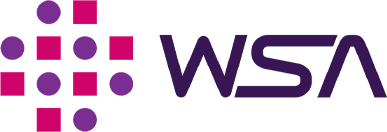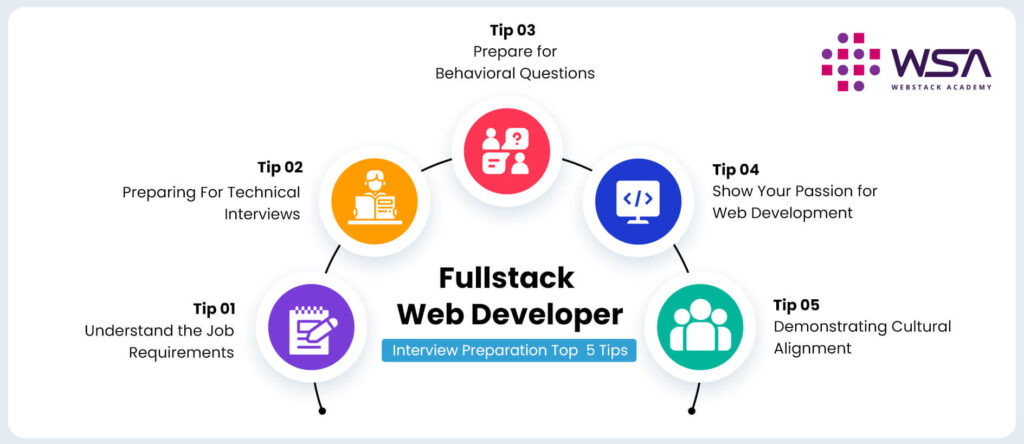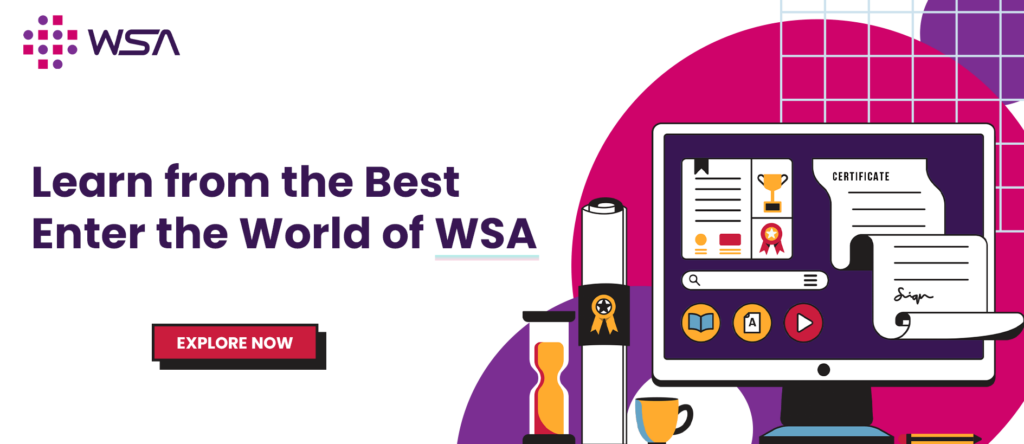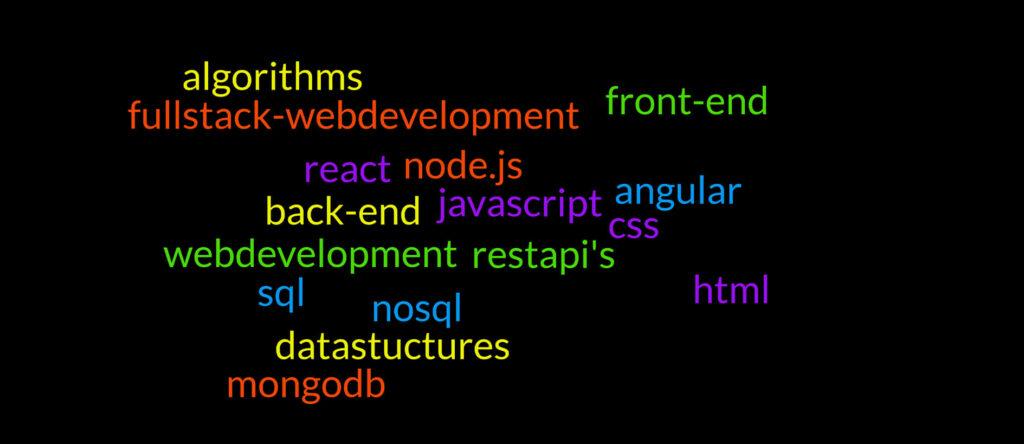Introduction
Stepping into the world of Full Stack web developer interviews opens the door to great career possibilities and professional growth.
As a candidate aspiring to thrive in this dynamic field, it’s essential to recognize the crucial role that effective interview preparation plays in converting an interview opportunity into a job offer letter.
The interview process not only assesses your technical prowess but also evaluates your problem-solving skills, teamwork abilities, and passion for web development.
In this blog, we will delve into a comprehensive guide to help you navigate full stack web developer interviews with confidence and success. We will be presenting them in terms of five essential tips to ace the interview.
By following these tips, you’ll equip yourself with the tools necessary to differentiate yourself in the job market and come out successfully with a job offer letter in hand.
Tip-1: Understand the Job Requirements
In the realm of full stack developer interview preparation and solving problems, knowing the problem well is like solving half of it. The same applies for understanding job requirements as well. Employers are seeking candidates who not only possess the right skills and experience but also demonstrate a keen understanding of the specific job requirements.
Here are some specific steps you can take to understand the job description and find-tune your resume to match the same.
Step-1: Thorough Review of Job Posting
The job description isn’t just a list of duties; it’s a roadmap that leads you to success. Take the time to thoroughly review the job posting. Pay close attention to the responsibilities, qualifications, and any specific keywords or phrases used. These hold the key to what the employer is seeking in an ideal candidate.
Step-2: Spotlight Your Key Skills and Experience
Once you’ve dissected the job description, it’s time to assess your own skills and experience. Identify the key skills, qualifications, and attributes the employer is prioritizing.
Highlight these on your resume, placing them prominently in your skills section and professional summary.
Step-3: Fine-Tune Your Resume
Fine-tuning a resume doesn’t mean fabricating experiences—it’s about strategically presenting your existing skills and accomplishments. As you fine-tune your resume, consider these steps:
- Relevant Experience: If you have previous roles that directly relate to the job you’re applying for, emphasize them.
- Keywords in the resume: Many companies use Applicant Tracking Systems (ATS) to scan resumes for keywords. Sprinkle relevant keywords from the job description throughout your resume, but do so organically. Don’t sacrifice readability for the sake of keywords.
- Showcase Achievements: Instead of a generic list of responsibilities, highlight achievements that illustrate how you’ve excelled in areas crucial to the role. Quantify your accomplishments whenever possible to provide a clear picture of your contributions.
By doing these actions you will make your resume eye-catching and easy for the employer to shortlist you.
Step-4: Customized Interview Preparation
Now that you fairly understand what the company is expecting, it’s important to focus on customized preparation for the interview.
One great way to do this is to refer to the previously asked questions by a particular company and build preparation around that.
Today there are a lot of resources and a real-time experience sharing ecosystem is available, you can leverage them during the preparation. Some of them mentioned in the section coming next.
Tip 2: Full Stack Developer Interview Preparation
Once you kick-start your customized full stack developer interview preparation plan, brushing up full stack developer technical skills comes first. It can be done by following the four steps mentioned below.
Step-1: Revise Key Technical Concepts
The Full Stack web developers are generalists, who are supposed to bring versatile and broad skill-sets into the table.
They need a strong grasp of Front-end technologies to create visually appealing and user-friendly interfaces. Proficiency in HTML, CSS, and JavaScript is a must. Familiarity with any one of the front-end libraries and frameworks like React, Angular, or Vue.js empowers developers to build responsive and interactive web applications.
Today’s web applications are all about scale. Hence a solid foundation in Back-end technologies is equally crucial. Full Stack developers should be adept in any one of the server-side scripting languages like Node.js, Python, Ruby, or PHP. Additionally, proficiency in working with databases like SQL or NoSQL and integration using REST APIs is essential for robust Back-end development.
Also Full Stack web developers work in a Team, where they are expected to follow software engineering process and methodologies. Having sound knowledge in version control systems like GIT and applying DevOps principles through tools like Docker, Kubernetes, or cloud platforms like AWS, Azure, or Google Cloud.
All the technical concepts related to the skill-set and full stack web development projects related above should be revised well before you appear for interviews. Utilize official documentation for languages and frameworks, along with free online tutorials. Resources like MDN Web Docs and freeCodeCamp provide tutorials and guides for learners at all levels.
Step-2: Hands-on Practice
Once you get familiar and confident with key technical concepts, it’s time to get hands-on practice.
Hence-on coding practice needs to be done at two levels. The first level is to apply all the technologies you have learnt so far by working on a set of assignments. This ensures you are able to apply your theoretical concepts well.
At the second level it’s important to solve real-time problems that are commonly asked in interviews. Here practicing Data Structures & Algorithms (popularly known as DSA) plays a very important role. Most of the product companies would expect you to get good with problem solving.
Online platforms like LeetCode, HackerRank, and CodeSignal offer coding challenges and exercises to sharpen your problem-solving skills. These platforms simulate real-world scenarios and provide an excellent arena for hands-on practice.
Step-3: Building Real-Time Projects
Building projects is an invaluable way to solidify your skills. Start with simple projects and gradually work your way up to more complex applications. GitHub repositories and open-source projects are also great for collaborative learning.
While learning from courses & doing hands-on coding is crucial, demonstrating your full stack developer technical skills in terms of projects are the cornerstones of becoming a proficient full stack web developer. By creating real-world applications, you’ll gain practical experience, develop problem-solving skills, and showcase your abilities to potential employers. Moreover, projects demonstrate your passion for coding and your ability to bring ideas to life.
Having good 7-8 full stack web development projects built consisting of basic, front end and full stack technology usage will improve your probability of getting selected into multifold. Added to that, representing in the form of an online portfolio is also very important.
In WSA, we have a structured program called DISHA, which covers all aspects of the Full Stack Developer Interview. The program is designed to brush up on technical skills, prepare for behavioral questions, and build an online portfolio.
We have a comprehensive guide on full stack developer interview preparation that has frequently asked questions in Full Stack web developer interview, which can help increase your probability of selection. Time to time mock interviews and company specific / role specific preparation workshops are conducted to ensure you are confident of facing interviews.
Tip-3: Prepare for Behavioral Questions
Technical skills alone won’t guarantee success in a full stack web developer interview. Behavioral questions play a pivotal role in assessing your teamwork skills, and how well you’ll fit into the company culture.
Typically interviewers would want to know how you deal with:
- Teamwork and collaboration challenges
- Conflict resolution issues
- Challenges / Unexpected situations in the project
- Flexibility to work on different roles and work environments
- Ability to produce results in real-time projects
Prior to your interview, reflect on your experiences and gather relevant examples for each question type. Practice articulating your answers concisely while highlighting the specific skills the interviewers are seeking. Use your technical and interpersonal experiences to provide a well-rounded view of your capabilities.
Having a mock interview done by a senior expert would also help you a lot.
Tip-4: Show Your Passion for Web Development
Beyond technical prowess, one of the keys to a successful Full Stack web developer interview lies in demonstrating your unwavering passion for the craft. Companies seek candidates who not only possess the required skills but also radiate enthusiasm in day-to-day work.
During Technical and even more important in HR / Management rounds, its important to show your passion for web development. Here are the steps to practice.
Step-1: Expressing your Passion
When stepping into a web developer interview, your technical abilities are just one part of the puzzle. Let’s explore how infusing your interview with genuine passion can truly set you apart and create a lasting impact on the interviewers.
Showcasing and explaining about your interactive portfolio website that mirrors your journey is where you can start expressing your passion. While explaining every section of your portfolio, narrate why, what and how of each section. This not only displays your coding finesse but also your deep enthusiasm for the craft.
Added to that you can start talking about your out-of-the-work interest area where you have made significant contributions like community work. Such things demonstrate the fact that irrespective of whatever you take up you deliver with full of passion and zeal to make an impact.
Step-2: Showcase Your Passion Through Full Stack Developer Skills
1. Personal Projects
Highlight personal web development projects that you’ve undertaken outside of work or academia. Discuss the challenges you faced, the solutions you devised, and the satisfaction you derived from bringing your ideas to life. Showcasing your initiative and dedication through personal full stack web development projects can be a compelling way to demonstrate your passion.
2. Open Source Contributions
Mention any contributions you’ve made to open source projects. Discuss how you’ve collaborated with the community, contributed code, and improved existing projects. This not only reveals your technical skills but also your commitment to giving back to the development community.
3. Attending Meetups and Conferences
If you’re an active participant in web development meetups, conferences, or workshops, share your experiences. Discuss key takeaways, networking encounters, and how such events have enriched your knowledge and enthusiasm for the field.
4. Online Presence and Portfolio
A well-curated online portfolio is a visual representation of your passion and capabilities. Highlight personal full stack web development projects, write-ups, and achievements. Utilize platforms like GitHub to display your code contributions and collaboration history.
Tip-5: Demonstrating Cultural Alignment
Demonstrating cultural alignment in interviews is a bit tricky.
Because organizational culture changes from one to another. Having said that there are common traits in all the organizations like customer focus, team work, basic human values etc. When it comes to demonstrating cultural alignment following steps are recommended.
Research the Company
Before the interview, thoroughly research the company’s mission, values, products, services, and leadership team. This will help you understand what the company stands for and how it operates.
By looking into recent developments in the company in terms of new product launch, industry accolades, press-releases will help you to build a good idea about the organization.
Full Stack Developer Interview Preparation: The Importance of Examples
During the interview, be ready to provide specific examples that demonstrate how your values and experiences align with the company’s mission and culture. These examples can be drawn from your previous work experiences, full stack developer technical skills, full stack web development projects, volunteer activities, or personal initiatives. You also need to be cautious here as it shouldn’t look like you are manufacturing them for the interview’s sake. Senior executives will figure such things out easily.
So it’s important for you to be natural and genuinely make an attempt by being consistent with what you say during all the rounds of interviews. This will put yourself in a very good position of getting selected.
Conclusion
In summary, excelling in the Full Stack web developer interview requires careful preparation, unwavering dedication, and genuine enthusiasm. The first crucial step is to understand the job requirements thoroughly and adjust your preparation accordingly, focusing on enhancing your full stack developer technical skills and showcasing your full stack web development projects. Showcasing real-world projects not only demonstrates your abilities but also highlights your capability to turn theoretical knowledge into practical solutions, giving you a strong advantage.
Furthermore, expressing authentic passion for the field and aligning your values with the prospective employer’s can make you stand out in a competitive interview process. Explaining how your personal values align with the company’s mission and culture not only signifies a potential cultural fit but also underscores your eagerness to contribute effectively to the organization’s achievements.
Lastly, whether your interviews are successful or not, see them as opportunities for growth. Each interaction provides insights for refining your approach and enhancing your skills. Regardless of the outcome, the key is to embrace the chance to learn, adapt, and improve, propelling your journey toward becoming an outstanding Full Stack web developer.
| SN | Related Blogs | Links |
|---|---|---|
| 1 | Cloud Computing Paradigm – the Third Wave! | Click Here |
| 2 | Top 5 Reasons to Choose JavaScript over Java for Web Development | Click Here |
| 3 | Top 10 Jargons Any Web Developer Should Know | Click Here |
People Also Ask(PAA)
Highlight unique experiences, show enthusiasm for the company and role, ask thoughtful questions, and demonstrate a deep understanding of the company’s needs.
A full stack developer portfolio should define you, your skill set, and your work. You need a portfolio to showcase your skills and land a job so that you can expose yourself as a better developer. It is important to create an impact on your career path as well.
Common mistakes include not preparing sufficiently, not asking questions, providing vague answers, and failing to explain your thought process during coding exercises.
Frame weaknesses as areas for growth, and discuss how you actively work to improve them. Emphasize your ability to seek help and learn from others.




